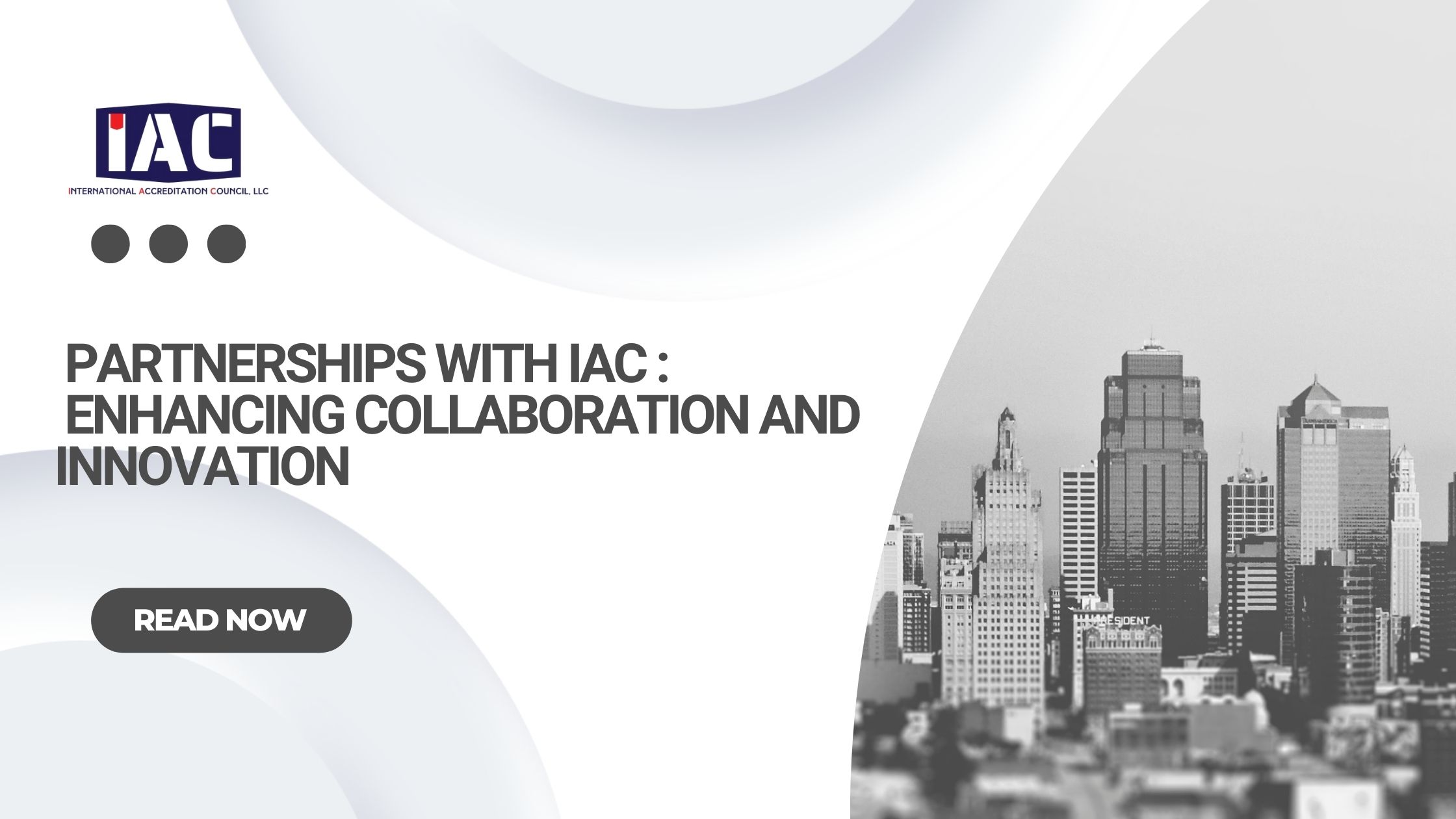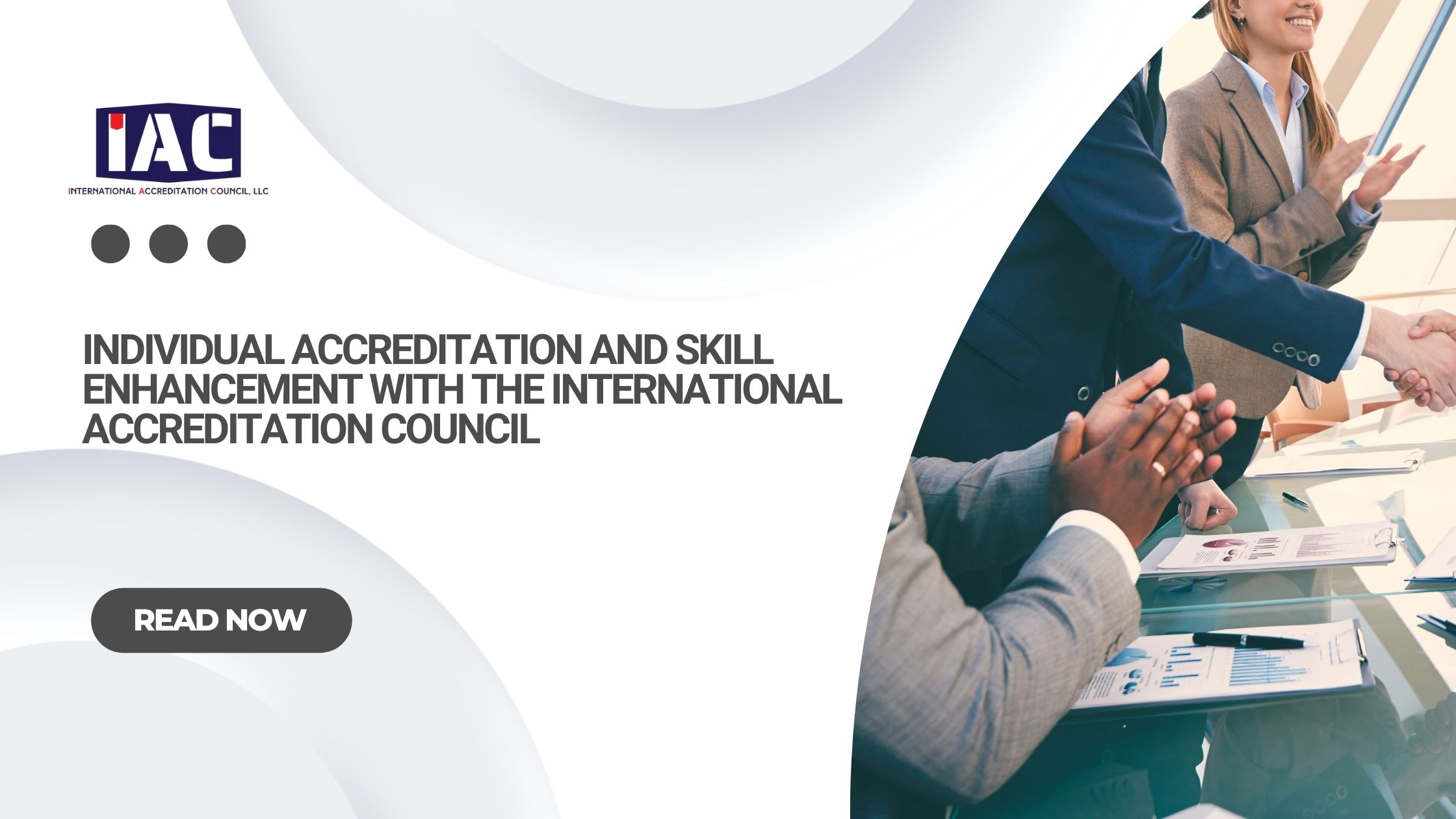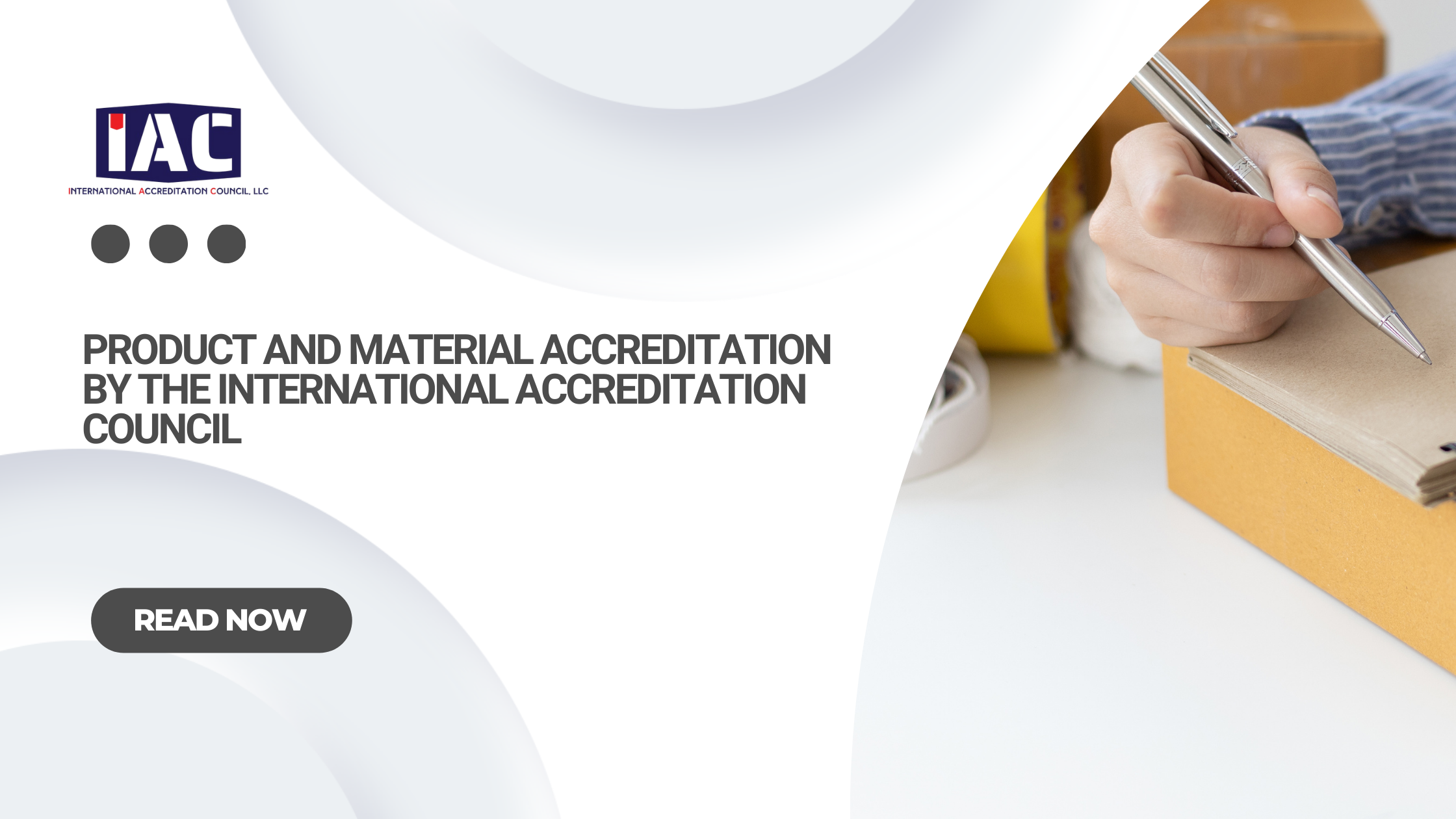Accreditation Systems Offered by the International Accreditation Council (IAC)
At the International Accreditation Council (IAC), we are committed to ensuring that institutions, organizations, and individuals meet the highest standards of quality and excellence. Our accreditation systems are designed to provide a comprehensive evaluation process tailored to different sectors. Below, we outline the various types of accreditations offered by IAC and their specific features.
1. Educational Accreditation
Overview
Educational accreditation assesses the quality of academic institutions, programs, and courses. It ensures that educational offerings meet established standards of excellence.
Key Features
- Institutional Accreditation: Evaluates the entire institution, including governance, faculty qualifications, curriculum, and resources.
- Programmatic Accreditation: Focuses on specific academic programs, ensuring they meet discipline-specific standards.
- Curriculum Review: Involves a detailed analysis of course content, teaching methods, and assessment strategies.
Benefits
- Enhances institutional credibility and reputation.
- Provides assurance to students and stakeholders regarding the quality of education.
2. Commercial Accreditation
Overview
Commercial accreditation evaluates businesses and organizations to ensure they adhere to industry best practices and quality standards.
Key Features
- Operational Assessment: Reviews internal processes, efficiency, and compliance with regulatory standards.
- Quality Management Systems: Evaluates the effectiveness of quality assurance protocols and practices.
- Customer Satisfaction Metrics: Assesses how well organizations meet customer expectations and feedback.
Benefits
- Improves operational efficiency and effectiveness.
- Enhances market reputation and customer trust.
3. Product and Material Accreditation
Overview
This accreditation system focuses on the quality and safety of products and materials across various sectors.
Key Features
- Standards Compliance: Ensures that products meet international quality and safety standards.
- Testing and Evaluation: Involves rigorous testing procedures to verify product performance and reliability.
- Ongoing Monitoring: Includes periodic assessments to ensure continued compliance with standards.
Benefits
- Instills confidence in consumers regarding product quality.
- Facilitates entry into markets that require specific accreditation.
4. Individual Accreditation
Overview
Individual accreditation is designed for professionals seeking to validate their skills and expertise in specific fields.
Key Features
- Competency Assessment: Evaluates knowledge and skills through standardized assessments.
- Certification Programs: Offers recognized credentials that enhance professional credibility.
- Continuous Professional Development: Provides opportunities for ongoing learning and skill enhancement.
Benefits
- Increases job market competitiveness and career opportunities.
- Enhances professional reputation and networking potential.
5. Event Accreditation
Overview
Event accreditation evaluates the quality and effectiveness of conferences, workshops, and other professional gatherings.
Key Features
- Program Review: Assesses the content and structure of the event to ensure it meets educational objectives.
- Speaker Evaluation: Reviews the qualifications and expertise of presenters and facilitators.
- Participant Feedback: Collects and analyzes participant feedback to gauge satisfaction and effectiveness.
Benefits
- Enhances the credibility of events and their organizers.
- Provides assurance to attendees regarding the quality of content and delivery.
Quality Accreditation
Quality accreditation is a fundamental aspect of the accreditation systems offered by the council, encompassing all ISO (International Organization for Standardization) certifications. These accreditations aim to ensure that institutions, products, and services meet the highest standards of quality and performance.
Accredited Standards According to ISO
1. ISO 9001
- Quality Management System: Focuses on enhancing customer satisfaction by ensuring the delivery of products and services that meet their needs and requirements.
2. ISO 14001
- Environmental Management System: Helps organizations improve their environmental performance by reducing negative impacts on the environment.
3. ISO 45001
- Occupational Health and Safety Management System: Enhances employee safety and reduces risks in the workplace.
4. ISO 50001
- Energy Management System: Aims to improve energy efficiency and reduce energy-related costs.
5. ISO 22000
- Food Safety Management System: Ensures that the food supply chain complies with safety and quality standards.
6. ISO 27001
- Information Security Management System: Focuses on protecting sensitive information and ensuring data integrity.
7. ISO 22301
- Business Continuity Management System: Helps organizations maintain critical operations in the event of crises or disruptions.
8. ISO 31000
- Risk Management: Provides a framework for effectively managing risks within organizations.
9. ISO 13485
- Quality Management System for Medical Devices: Ensures that medical devices meet regulatory requirements and quality standards.
These ISO certifications play a crucial role in helping organizations demonstrate their commitment to quality and continuous improvement. For more information on how to achieve these certifications, please contact us.






